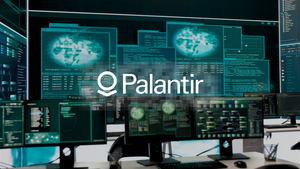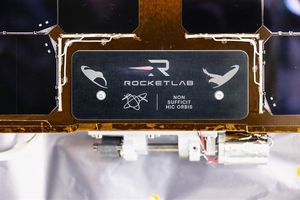
Grand Cayman, Cayman Islands – November 12, 2025 – A profound and transformative shift is underway in the world of artificial intelligence, promising to usher in an era defined by unprecedented transparency, accountability, and reliability. This week marks a pivotal moment, with the unveiling and significant advancements of multiple pioneering decentralized AI networks. This decisive move away from opaque, centralized systems toward a more trustworthy future for intelligent machines is immediately significant, addressing long-standing concerns about bias, privacy, and control, and laying the groundwork for AI that society can genuinely rely on.
Leading this charge, Strategy A Crust (SAC) today announced the unveiling of its decentralized AI network, hailed as a foundational leap toward verifiable and community-governed AI. Simultaneously, the Allora Foundation launched its mainnet and ALLO token yesterday, introducing a self-improving decentralized intelligence layer, while Pi Network revealed an OpenMind AI Proof-of-Concept Case Study demonstrating successful decentralized AI processing. These developments collectively underscore a growing consensus: decentralization is not merely an alternative, but a necessary evolution for building dependable AI that can overcome the "AI trust crisis" rooted in algorithmic bias, model opacity, and data ownership issues prevalent in traditional, centralized models.
The Technical Blueprint for Trust: Decentralization's Core Innovations
The recent wave of decentralized AI network unveilings showcases a sophisticated blend of cutting-edge technologies designed to fundamentally redefine AI architecture. Strategy A Crust (SAC), for instance, has introduced a modular, blockchain-powered framework that aims to establish AI credibility through network consensus rather than corporate dictate. Its architecture integrates cryptographic proofs and distributed ledger technology to create immutable audit trails for AI model training, data provenance, and decision-making processes. This allows for unprecedented transparency, enabling any stakeholder to verify the integrity and fairness of an AI system from its inception to its deployment. Unlike traditional black-box AI models, SAC's approach provides granular insights into how an AI reaches its conclusions, fostering a level of explainable AI (XAI) previously unattainable on a large scale.
The Allora Foundation's mainnet launch introduces a self-improving decentralized intelligence layer built on a novel mechanism for incentivizing and aggregating the predictions of multiple machine learning models. This network leverages a "Reputation-Weighted Majority Voting" system, where participants (called "Head Models") submit predictions, and their reputation (and thus their reward) is dynamically adjusted based on the accuracy and consistency of their contributions. This continuous feedback loop fosters an environment of constant improvement and robust error correction, distinguishing it from static, centrally trained models. Furthermore, Allora's use of zero-knowledge proofs ensures that sensitive data used for model training and inference can remain private, even while its contributions to the collective intelligence are validated, directly addressing critical privacy concerns inherent in large-scale AI deployment.
Meanwhile, Pi Network's OpenMind AI Proof-of-Concept Case Study highlights its potential as a foundational layer for community-owned AI computation. By demonstrating the successful execution of complex AI processing tasks across its vast network of decentralized nodes, Pi Network showcases how distributed computing power can be harnessed for AI. This differs significantly from cloud-centric AI infrastructure, which relies on a few major providers (e.g., Amazon Web Services (NASDAQ: AMZN), Microsoft Azure (NASDAQ: MSFT), Google Cloud (NASDAQ: GOOGL)). Pi's approach democratizes access to computational resources for AI, reducing reliance on centralized entities and distributing control and ownership. Initial reactions from the AI research community have been largely positive, with many experts emphasizing the potential for these decentralized models to not only enhance trust but also accelerate innovation by fostering open collaboration and shared resource utilization.
Reshaping the AI Landscape: Implications for Companies and Markets
The emergence of decentralized AI networks signals a significant shift that will undoubtedly reshape the competitive dynamics among AI companies, tech giants, and nascent startups. Companies specializing in blockchain infrastructure, decentralized finance (DeFi), and privacy-enhancing technologies stand to benefit immensely. Startups building on these new decentralized protocols, such as those focused on specific AI applications leveraging SAC's verifiable AI or Allora's self-improving intelligence, could gain a strategic advantage by offering inherently more trustworthy and transparent AI solutions. These new entrants can directly challenge the dominance of established AI labs by providing alternatives that prioritize user control, data privacy, and algorithmic fairness from the ground up.
For major tech giants like Alphabet (NASDAQ: GOOGL), Microsoft (NASDAQ: MSFT), and Meta Platforms (NASDAQ: META), which have invested heavily in centralized AI research and cloud-based AI services, the rise of decentralized AI presents both a challenge and an opportunity. While it could disrupt their existing product lines and potentially fragment their market control, it also opens avenues for integration and collaboration. These giants might need to adapt their strategies, potentially by incorporating decentralized components into their offerings or by acquiring promising decentralized AI startups. The competitive implications are clear: companies that fail to address the growing demand for trustworthy and transparent AI, as enabled by decentralization, risk losing market share to more agile and community-aligned alternatives.
Furthermore, this development could lead to a re-evaluation of data monetization strategies and intellectual property in AI. Decentralized networks often empower data owners with greater control and offer new models for compensating contributors to AI development and data provision. This could disrupt the current paradigm where large tech companies accumulate vast datasets and proprietary models, potentially leveling the playing field for smaller entities and fostering a more equitable AI ecosystem. Companies that can successfully navigate this transition and integrate decentralized principles into their business models will likely secure strong market positioning in the coming years.
Wider Significance: A Paradigm Shift for AI's Future
The unveiling of decentralized AI networks represents more than just a technical advancement; it signifies a paradigm shift in how artificial intelligence is conceived, developed, and governed. This development fits perfectly into the broader AI landscape, which has been increasingly grappling with issues of ethics, bias, and control. It directly addresses the growing public demand for AI systems that are not only powerful but also fair, transparent, and accountable. By embedding trust mechanisms at the architectural level, decentralized AI offers a robust solution to the "black box" problem, where the internal workings of complex AI models remain opaque even to their creators.
The impacts of this shift are profound. It promises to democratize AI development, allowing a wider range of participants to contribute to and benefit from AI innovation without being beholden to centralized gatekeepers. This could lead to more diverse and inclusive AI applications, better reflecting the needs and values of global communities. Potential concerns, however, include the inherent complexities of managing decentralized governance, ensuring robust security against malicious actors in a distributed environment, and the challenges of achieving computational efficiency comparable to highly optimized centralized systems. Nevertheless, proponents argue that the benefits of enhanced trust and resilience far outweigh these challenges.
Comparing this to previous AI milestones, the advent of decentralized AI could be as significant as the development of deep learning or the rise of large language models. While those breakthroughs focused on enhancing AI capabilities, decentralized AI focuses on enhancing AI's integrity and societal acceptance. It moves beyond simply making AI smarter to making it smarter in a way we can trust. This emphasis on ethical and trustworthy AI is critical for its long-term integration into sensitive sectors like healthcare, finance, and critical infrastructure, where verifiable decisions and transparent operations are paramount.
The Horizon of Decentralized AI: Future Developments and Applications
The immediate future of decentralized AI networks will likely see a rapid iteration and refinement of their core protocols. Expected near-term developments include enhanced interoperability standards between different decentralized AI platforms, allowing for a more cohesive ecosystem. We can also anticipate the emergence of specialized decentralized AI services, such as verifiable data marketplaces, privacy-preserving machine learning frameworks, and decentralized autonomous organizations (DAOs) specifically designed to govern AI models and their ethical deployment. The focus will be on scaling these networks to handle real-world computational demands while maintaining their core tenets of transparency and decentralization.
In the long term, the potential applications and use cases are vast and transformative. Decentralized AI could power truly private and secure personal AI assistants, where user data remains on the device and AI models are trained collaboratively without centralized data aggregation. It could revolutionize supply chain management by providing verifiable AI-driven insights into product origins and quality. In healthcare, decentralized AI could enable secure, privacy-preserving analysis of medical data across institutions, accelerating research while protecting patient confidentiality. Furthermore, it holds the promise of creating genuinely fair and unbiased AI systems for critical decision-making processes in areas like loan applications, hiring, and criminal justice, where algorithmic fairness is paramount.
However, significant challenges need to be addressed. Achieving true scalability and computational efficiency in a decentralized manner remains a complex engineering hurdle. Regulatory frameworks will also need to evolve to accommodate these new AI architectures, balancing innovation with necessary oversight. Experts predict that the next phase will involve a "Cambrian explosion" of decentralized AI applications, as developers leverage these foundational networks to build a new generation of intelligent, trustworthy systems. The focus will be on proving the practical viability and economic advantages of decentralized approaches in diverse real-world scenarios.
A New Chapter in AI History: Trust as the Core Tenet
The unveiling of decentralized AI networks this week marks a pivotal moment, signaling a new chapter in artificial intelligence history where trust, transparency, and accountability are no longer afterthoughts but fundamental architectural principles. The key takeaways are clear: centralized control and opaque "black box" algorithms are being challenged by open, verifiable, and community-governed systems. This shift promises to address many of the ethical concerns that have shadowed AI's rapid ascent, paving the way for more responsible and socially beneficial applications.
The significance of this development cannot be overstated. It represents a maturation of the AI field, moving beyond raw computational power to focus on the qualitative aspects of AI's interaction with society. By leveraging technologies like blockchain, federated learning, and zero-knowledge proofs, decentralized AI is building the infrastructure for intelligent systems that can earn and maintain public confidence. This evolution is crucial for AI's broader acceptance and integration into critical aspects of human life.
In the coming weeks and months, it will be essential to watch for further advancements in scalability solutions for these decentralized networks, the adoption rates by developers and enterprises, and how regulatory bodies begin to engage with this emerging paradigm. The success of decentralized AI will hinge on its ability to deliver on its promises of enhanced trust and fairness, while also demonstrating competitive performance and ease of use. This is not just a technological upgrade; it's a foundational re-imagining of what AI can and should be for a trustworthy future.
This content is intended for informational purposes only and represents analysis of current AI developments.
TokenRing AI delivers enterprise-grade solutions for multi-agent AI workflow orchestration, AI-powered development tools, and seamless remote collaboration platforms.
For more information, visit https://www.tokenring.ai/.





